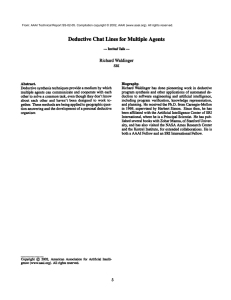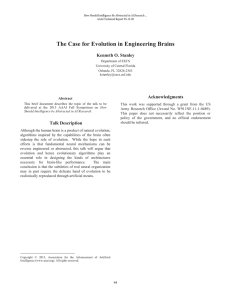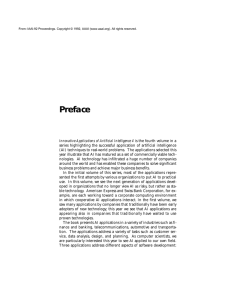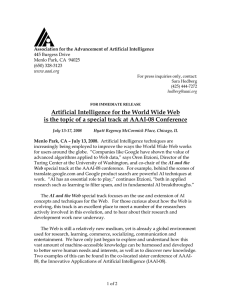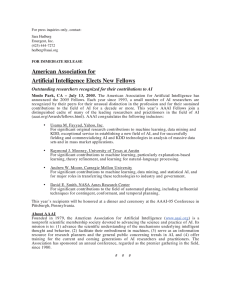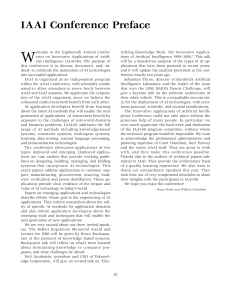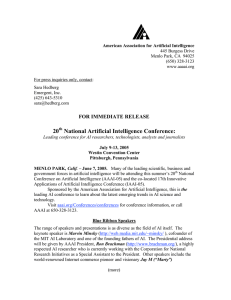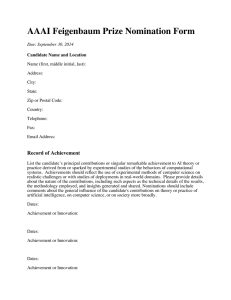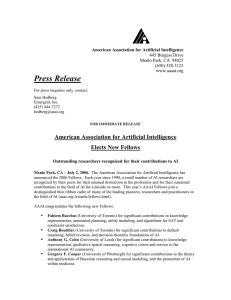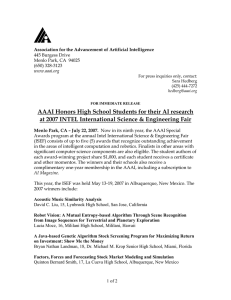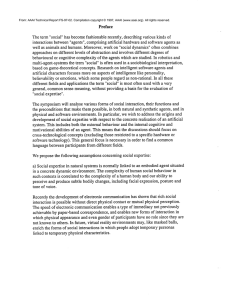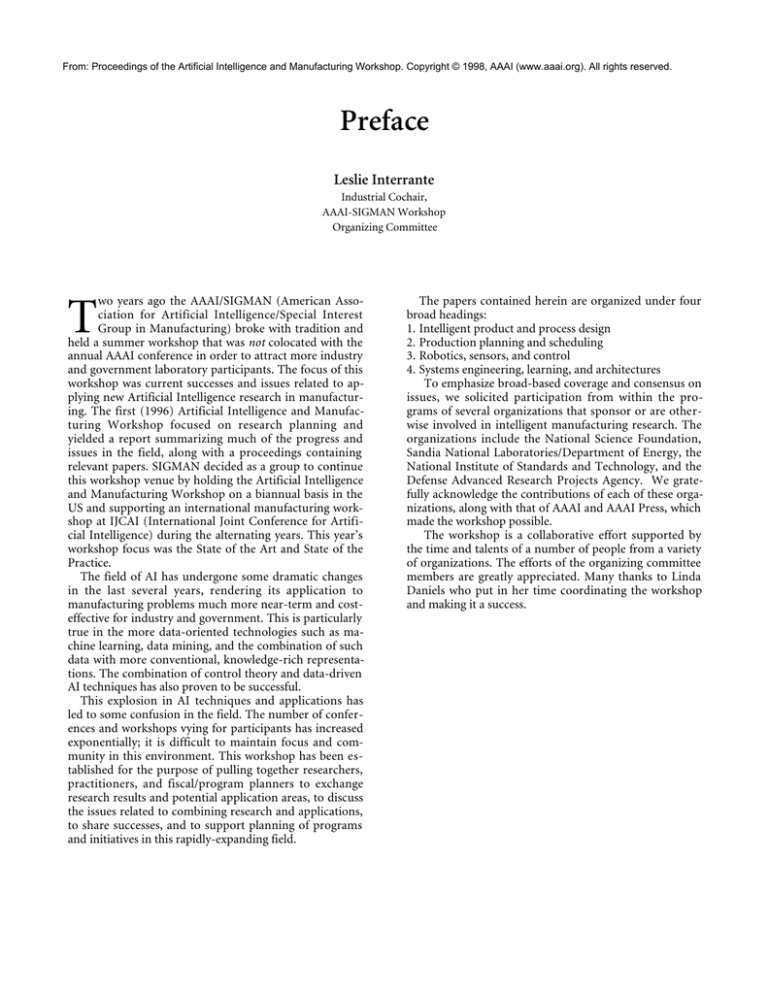
From: Proceedings of the Artificial Intelligence and Manufacturing Workshop. Copyright © 1998, AAAI (www.aaai.org). All rights reserved.
Preface
Leslie Interrante
Industrial Cochair,
AAAI-SIGMAN Workshop
Organizing Committee
wo years ago the AAAI/SIGMAN (American Association for Artificial Intelligence/Special Interest
Group in Manufacturing) broke with tradition and
held a summer workshop that was not colocated with the
annual AAAI conference in order to attract more industry
and government laboratory participants. The focus of this
workshop was current successes and issues related to applying new Artificial Intelligence research in manufacturing. The first (1996) Artificial Intelligence and Manufacturing Workshop focused on research planning and
yielded a report summarizing much of the progress and
issues in the field, along with a proceedings containing
relevant papers. SIGMAN decided as a group to continue
this workshop venue by holding the Artificial Intelligence
and Manufacturing Workshop on a biannual basis in the
US and supporting an international manufacturing workshop at IJCAI (International Joint Conference for Artificial Intelligence) during the alternating years. This year’s
workshop focus was the State of the Art and State of the
Practice.
The field of AI has undergone some dramatic changes
in the last several years, rendering its application to
manufacturing problems much more near-term and costeffective for industry and government. This is particularly
true in the more data-oriented technologies such as machine learning, data mining, and the combination of such
data with more conventional, knowledge-rich representations. The combination of control theory and data-driven
AI techniques has also proven to be successful.
This explosion in AI techniques and applications has
led to some confusion in the field. The number of conferences and workshops vying for participants has increased
exponentially; it is difficult to maintain focus and community in this environment. This workshop has been established for the purpose of pulling together researchers,
practitioners, and fiscal/program planners to exchange
research results and potential application areas, to discuss
the issues related to combining research and applications,
to share successes, and to support planning of programs
and initiatives in this rapidly-expanding field.
T
The papers contained herein are organized under four
broad headings:
1. Intelligent product and process design
2. Production planning and scheduling
3. Robotics, sensors, and control
4. Systems engineering, learning, and architectures
To emphasize broad-based coverage and consensus on
issues, we solicited participation from within the programs of several organizations that sponsor or are otherwise involved in intelligent manufacturing research. The
organizations include the National Science Foundation,
Sandia National Laboratories/Department of Energy, the
National Institute of Standards and Technology, and the
Defense Advanced Research Projects Agency. We gratefully acknowledge the contributions of each of these organizations, along with that of AAAI and AAAI Press, which
made the workshop possible.
The workshop is a collaborative effort supported by
the time and talents of a number of people from a variety
of organizations. The efforts of the organizing committee
members are greatly appreciated. Many thanks to Linda
Daniels who put in her time coordinating the workshop
and making it a success.

